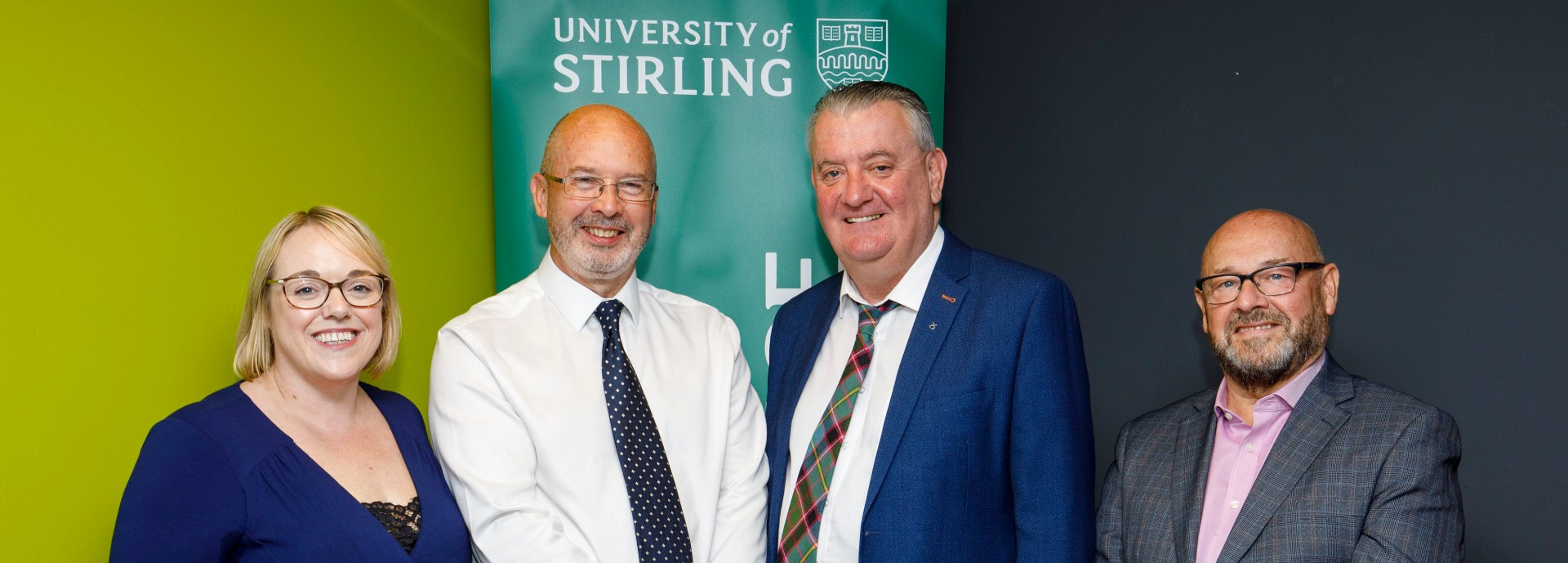The University of Stirling’s pivotal role in driving innovation and growth through the Stirling and Clackmannanshire City Region Deal was showcased to MSPs during a visit to campus.
Senior staff hosted the Scottish Parliament’s Local Government and Communities Committee today [Monday 9 September]. Committee members heard how research will play a key role in the £90.2 million City Region Deal, which will be driven by the University through the creation of a new Aquaculture Innovation Hub and Scotland’s International Environment Centre.
MSPs were told that collaboration between researchers, industry, communities and local government was central to driving successful innovation, and unlocking sustainable and socially inclusive economic growth.
Welcoming the committee, Professor Malcolm MacLeod, Senior Deputy Principal, said: “The University of Stirling is a world-leading centre for environment-related research. Our researchers are truly making a difference throughout the world – from feeding communities through sustainable aquaculture research, to developing practices for environmental protection, conservation, economic growth and social wellbeing.
“By working closely with partners, we are using our expertise to understand challenges faced by people, governments and businesses across the globe – and pioneer innovative solutions to the world’s most pressing problems. This research and innovation is central to the vision of increased productivity and inclusive growth, as set out in the Stirling and Clackmannanshire City Region Deal.”
Announced in May 2018, the City Region Deal – funded by the UK and Scottish Governments – will unlock the potential to drive economic growth, well-being, productivity and prosperity.
The Deal provides £17 million for the Aquaculture Hub – placing research and innovation at the heart of its effort to ensure the world has a secure, sustainable supply of food – and £22 million for Scotland’s International Environment Centre, a comprehensive approach to environmental stewardship that places shared responsibility and sustainability at the centre of the drive to be more productive.
Opportunity
Convener of the Local Government and Communities Committee, James Dornan MSP, said: “The Committee strongly supports the City Region Deals initiative which is a great opportunity for Scotland’s cities. But it is also our duty to ensure we monitor how these resources are being invested. Our visit is an excellent opportunity to find out the success of the project in Stirling and Clackmannanshire so far and to learn of any issues they have encountered.
“While in Stirling, we will also be meeting with the Raploch Community Partnership Hub to examine the positive lessons from regeneration projects in the community over the past few years.
“We’ll also be continuing our inquiry into the Non-Domestic Rates Bill concerning business rates and we look forward to discussing this in more detail with the local business community.”
The City Region Deal is a partnership involving the University of Stirling, the UK and Scottish Governments, Clackmannanshire Council, Stirling Council, and Forth Valley College.

